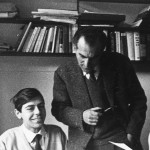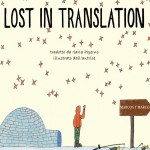
UNA NUOVA RUBRICA A DISPOSIZIONE DEI TRADUTTORI |
In ogni libro tradotto, c’è una pagina mancante. È la pagina in cui il traduttore racconta come e perché dal testo originale, attraverso molteplici stesure, parole scritte e cancellate, appunti su taccuini e letture di contorno, ha scelto le parole che, a una a una, nero su bianco, compongono il libro che tenete in mano.
Se avete letto La pagina bianca di Karen Blixen (in Ultimi racconti, Adelphi, 1982, traduzione italiana di Adriana Motti), sapete che in letteratura esiste un convento, «tra le azzurre montagne del Portogallo», dove le monache carmelitane producono il lino più fine del paese, un lino così «liscio, delicato e liliale» che le monache forniscono le lenzuola nuziali perfino alla casa reale. Nel convento, ormai in rovina, esiste altresì una galleria,
Va’ avanti →


